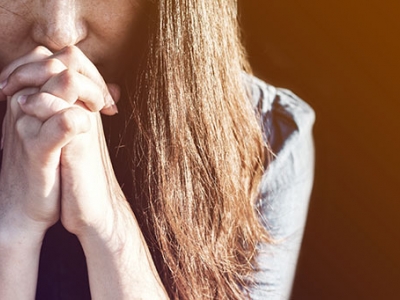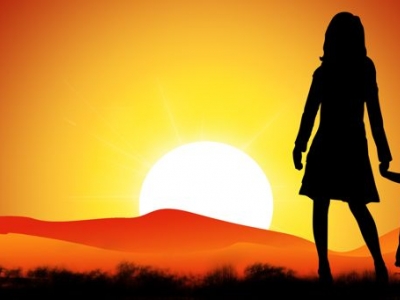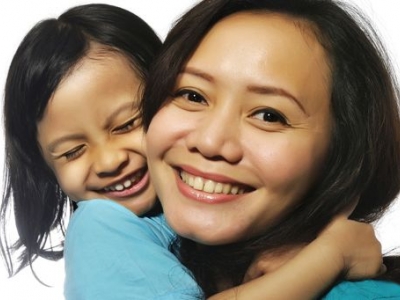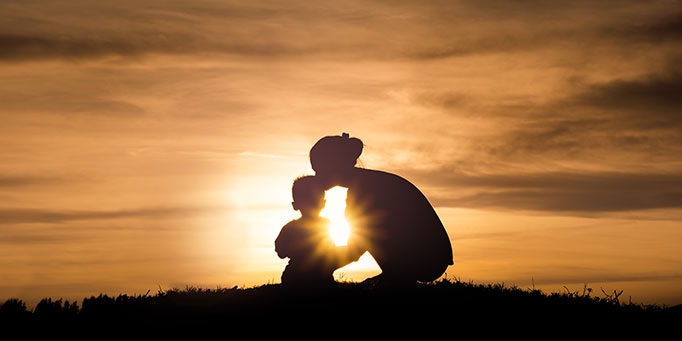
Bearing the wounds of motherhood
Hope for when raising children in a fallen world hurts.
‘Have more babies!’ my aunty pleaded last week, when our seven-month-old was being particularly cute at a family gathering. Come to think of it, wherever we go—church, school, playgroup or the shops—our (usually) beaming baby boy brings great joy.
Everyone loves babies!
I think the reason for this is that babies are so perfect. They embody a fresh start, pure potential, hope for the future. When we look at a baby, it kindles a hope that our world might become a better place for them to grow up in. When we look at a baby, it kindles a hope that their life might be better than ours has been. When we look at a baby, it kindles a hope that we might do a better job of child-raising than previous generations.
But as an older mother with three older children, my hope for our baby is somewhat muted; it’s a bit restrained by what I’ve seen of real life. I know that our world can be a cruel place for children—we parents can’t always shelter them from bullies or accidents or sickness. I know that every child will have disadvantages to overcome—an allergy, a health problem or an anxious personality. I know that at some point, even this new baby will experience the kind of mistakes and imperfections that make me feel like the worst mother in the world.
Everyone loves babies because, for the most part, babies haven’t yet been wounded by the world. But as a mother I know that, in some shape or form, the wounds are coming and I will be powerless to stop them. And that is the wound of motherhood.
A mother’s pain
When Mary and Joseph presented baby Jesus at the temple, Simeon’s heart brimmed over with hope:
Sovereign Lord, as you have promised,
you may now dismiss your servant in peace.
For my eyes have seen your salvation,
which you have prepared in the sight of all nations:
a light for revelation to the Gentiles,
and the glory of your people Israel. (Luke 2:29–32)
But he then said privately to Mary:
This child is destined to cause the falling and rising of many in Israel, and to be a sign that will be spoken against, so that the thoughts of many hearts will be revealed. And a sword will pierce your own soul too. (Luke 2:34–35)
From the very beginning, Mary knew that her son, God’s promised Messiah, would face difficulty and opposition in the world. And the wounds he bore—accusation, condemnation, abandonment and execution—would also cause great pain and confusion for his mother watching on.
Mary would come to know the truth of God’s words to Eve, the first mother:
I will make your pains in childbearing very severe;
with painful labour you will give birth to children. (Genesis 2:16)
For mothers, the birth of a child isn’t the end of our pain—it’s just the beginning. As we see the Fall start casting its long, dark shadow across our children’s lives, it hurts. Our lives are bound up so closely with our children’s that their wounds become ours.
A son to heal our wounds
But like Eve and Mary before us, we can put our hope in God’s promises.
God promised Eve that although her descendants would be wounded by the serpent, one of them would defeat him decisively (Genesis 3:15). Mary knew in her heart that through her son, the Mighty One was doing great things (Luke 2:49).
Isaiah’s prophecy explains how it would be the Messiah’s wounds that would bring about his decisive victory over sin and death:
But he was pierced for our transgressions,
he was crushed for our iniquities;
the punishment that brought us peace was on him,
and by his wounds we are healed. (Isaiah 53:5)
As she stood watching her son being mocked and crucified, Mary the mother probably felt that she was carrying Jesus’ pain. But after Jesus’ resurrection, Mary the disciple must have realised that in fact, it was Jesus who had been carrying hers.
By dying in our place and rising again, Jesus took away death’s ‘sting’. He showed that the pain that we and our children experience in this life has an expiry date. He showed that no matter how bad things look now, God can somehow work it for good.
Every mother bears the wounds of raising children in a fallen world. But every mother can look to Jesus—the perfect Son who has borne our wounds, defeating sin and death forever.
Hope for the wounded
On this side of the cross, motherhood still hurts. We still ‘feel’ the wounds our children receive from the world, their own imperfections and our mistakes.
We can’t protect our children from the hardships of life in a fallen world, but we can show them how to put their hope in Jesus—the one who died to bring us spiritual healing and rose again to give us eternal life. We can show them how to long for the day when God will make a new creation, where ‘there will be no more death or mourning or crying or pain, for the old order of things has passed away’ (Revelation 21:4). And we can show them how to draw on the power of God’s Spirit to strengthen, comfort and sustain us while we wait.
Next time you look at a seemingly perfect baby, remember the one truly perfect baby who is the real hope of every mother and every child. Sisters, we can bear the wounds of motherhood because he has borne them first.
---
Harriet Connor is the Content Editor for Growing Faith and the author of Big Picture Parents: Ancient Wisdom for Modern Life (Wipf and Stock, 2017). She lives on the Central Coast of NSW with her husband and four sons.
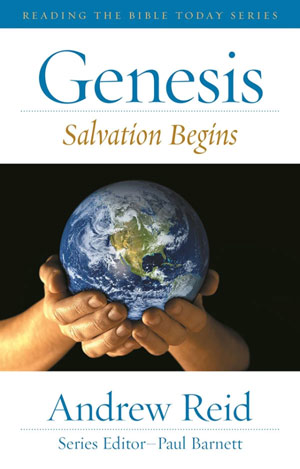
Genesis - Salvation Begins
In Genesis - Salvation Begins, Andrew Reid gives readers a framework for appreciating the Old Testament as Christian scripture.
For more articles from Growing Faith, subscribe to our monthly e-newsletter.
To hear about the latest books and resources from Youthworks Media, subscribe here.


